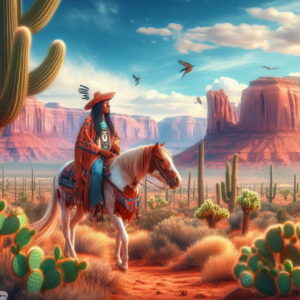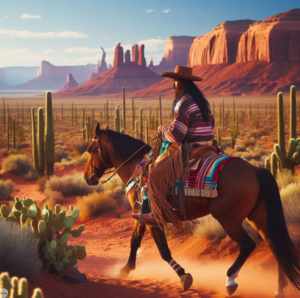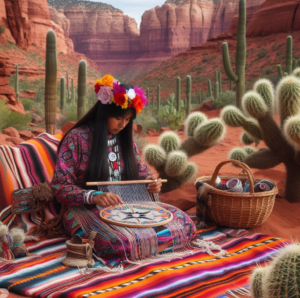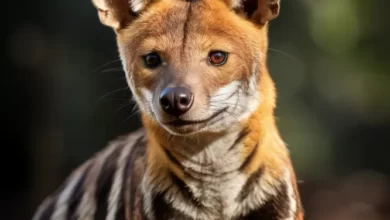Discovering the Navajo, the largest Native American reservation
All about one of the oldest tribes in the USA
Who are the Navajo People?
The Navajo Nation is the largest Native American reservation in the United States, spanning across parts of Arizona, New Mexico, and Utah. The Navajo people, also known as the Diné, have a rich and complex cultural heritage that has endured for centuries. This article will explore the history, traditions, and contemporary life of the Navajo Nation.
History of the Navajo

Origins and Early History
The Navajo people are believed to have migrated from the northern regions of North America, eventually settling in the southwestern part of the continent. Their traditional lifestyle was centered around agriculture, hunting, and gathering.
Encounters with European Colonizers
The arrival of European colonizers in the 16th century had a profound impact on the Navajo people. Conflicts over land, resources, and cultural differences led to a series of wars and treaties.
The Long Walk and the Bosque Redondo

One of the most tragic events in Navajo history was the Long Walk, a forced relocation of the Navajo people to a reservation in Bosque Redondo, New Mexico. The harsh conditions and diseases led to widespread suffering and death.
Navajo Culture and Traditions
The Navajo Language
The Navajo language, also known as Diné bizaad, is a complex language with a unique grammar and vocabulary. It is one of the few surviving Native American languages that is still widely spoken today.
Traditional Navajo Arts and Crafts
Navajo artisans are renowned for their beautiful and intricate artwork, including weaving, silversmithing, and pottery. These crafts play a significant role in preserving Navajo culture and providing economic opportunities for the community.
The Role of Sandpaintings in Navajo Ceremonies

Sandpaintings, or chants, are sacred works of art created by Navajo medicine men as part of healing ceremonies. These intricate designs are believed to have spiritual power and are created using colored sands.
The Importance of Kinship and Clan System
The Navajo kinship system is based on clans, which are groups of people descended from a common ancestor. Clans play a vital role in Navajo society, governing social relationships, property rights, and ceremonial practices.
Contemporary Navajo Life
Challenges and Opportunities

Today, the Navajo Nation faces a number of challenges, including poverty, unemployment, and environmental issues. However, the Navajo people are also working to preserve their culture and traditions while adapting to the modern world.
Economic Development and Self-Governance
The Navajo Nation has made significant strides in economic development, establishing businesses, and promoting tourism. Additionally, the tribe has worked to strengthen its self-governance and protect its natural resources.
Conclusion
The Navajo people have a rich and complex history, and their cultural heritage continues to shape their lives today. By understanding the challenges and triumphs of the Navajo Nation, we can appreciate the resilience and strength of this remarkable people.




